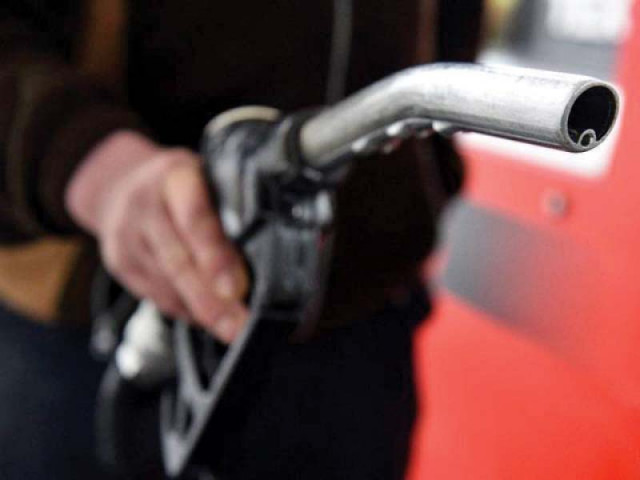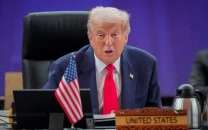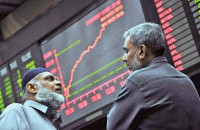OGRA proposes slight reduction in petrol price
Suggests increase of Rs2.47 per litre in price of diesel

Suggests increase of Rs2.47 per litre in price of diesel. PHOTO: FILE
According to an official, Ogra has sent its summary containing price recommendations to the Ministry of Energy (Petroleum Division), which will then forward the paper to the Ministry of Finance for approval. The government will take decision on price revision on Friday.
The regulator has proposed an increase of Rs2.47 per litre, or 1.9%, in the price of high-speed diesel, which is mainly used in transport and agriculture sectors. Any hike in its price would have a direct impact on the life of the masses as it will push up the rate of inflation.
With the revision, the price of high-speed diesel will go up to Rs129.73 per litre for February compared to the existing price of Rs127.26.
However, the regulator has suggested a nominal reduction of Rs0.06 per litre, or 0.1%, in the price of petrol, which is mainly used in cars and will benefit the common man.
If approved, the petrol price will edge down to Rs116.54 per litre compared to Rs116.60 for January. Petrol is an alternative fuel for compressed natural gas (CNG) and is mainly consumed by vehicles in Punjab where local gas is not available and CNG retail outlets are run on comparatively expensive imported gas.
Ogra has suggested an increase of Rs1.10 per litre, or 1.3%, in the price of light diesel oil, which is an industrial fuel. If the government accepts the recommendation, its price will rise to Rs85.61 per litre from the current Rs84.51.
However, Ogra has proposed a reduction of Rs0.66 per litre, or 0.7%, in the price of kerosene oil. Its price will go down from the current Rs99.45 to Rs98.79 per litre.
Kerosene is used for cooking purposes, especially in the far-off areas where liquefied petroleum gas (LPG) or pipeline gas is not available.
The government charges 17% general sales tax (GST) on all petroleum products. Apart from that, it collects petroleum levy on the sale of these products.
Petroleum levy stands at Rs18 per litre on diesel, Rs15 on petrol, Rs6 on kerosene oil and Rs3 on light diesel oil.
In the tenure of previous Pakistan Muslim League-Nawaz (PML-N) government, the petroleum levy was charged in the range of Rs3 to Rs10 per litre, however, GST was higher than the current rate.
Since GST is shared with the provinces, the federal government has slashed the sales tax and has hiked the petroleum levy in a bid to collect more revenue for the federal purse to meet its high revenue requirement.
Since the current Pakistan Tehreek-e-Insaf (PTI) government came to power in August 2018, prices of petroleum products have gone up in the wake of rupee's depreciation against the US dollar.
Pakistan is a net importer of petroleum products and meets almost 85% of its needs through imports. The rupee depreciation has played a key role in increasing petroleum product prices, which has fuelled inflation in the country.



















COMMENTS
Comments are moderated and generally will be posted if they are on-topic and not abusive.
For more information, please see our Comments FAQ